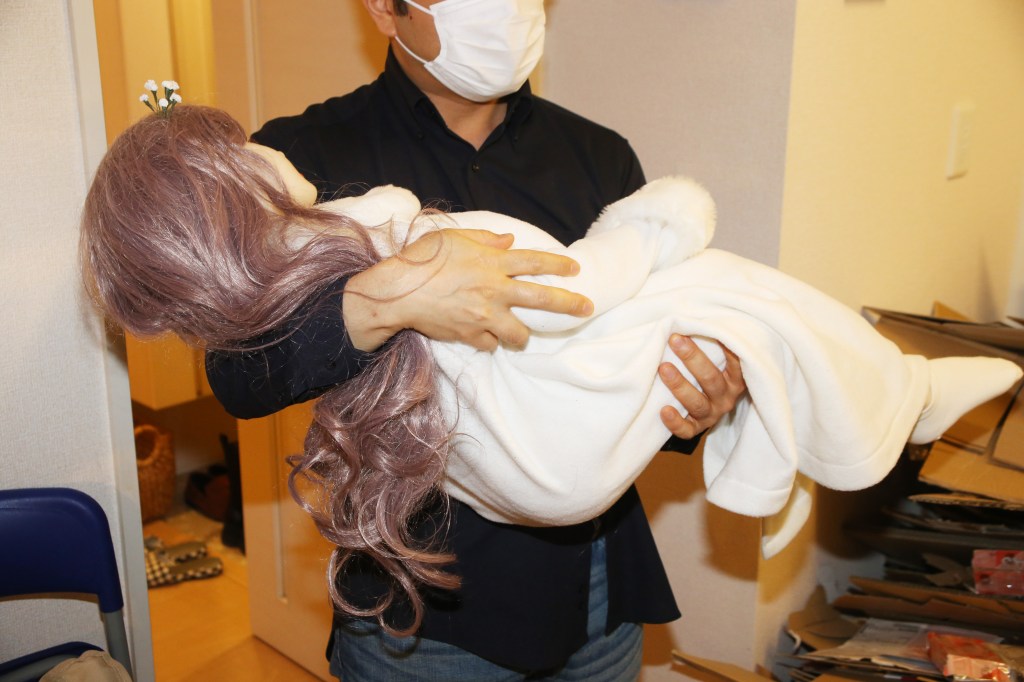We are living in an individualistic era. The President of the United States is intent on building a border wall; the UK will be Brexitting in five weeks.
With all of this feeling as though it’s happening above our heads, it seems natural that for some – especially millennials – a predilection for solitude has bled into daily life. Many of us queue up for self-checkout lanes because, given the option, we’d rather not talk to a stranger. The attention we pay to the technology in our hands, and to digital avatars over flesh-and-blood selves, is making us sick and neurotic in our droves. As it’s so often stated, in an era where we can connect in seconds, we’ve potentially never been more marooned.
Videos by VICE
Film and TV streaming platforms like Netflix make up an interesting part of this particular breed of mass isolation. On one hand, they keep us separated, watching, watching, watching – on the sofa or in bed, eating pasta; on the train, blocking out the commute happening around us. From another perspective, though, they encourage community by constantly providing new pieces of popular culture for us to gather around.
And so, Netflix, in all the questions it poses, is an interesting platform for the show Russian Doll, the comedy-drama it released in full earlier this month, which stars and was co-created by Natasha Lyonne (following her star-making role as Nicky in streaming success story Orange Is the New Black). That’s because though Russian Doll begins with a blackly funny Groundhog Day scenario, it ends with a profound moral about how, fundamentally, being human is about our real, lived bonds with others, and our relationships to ourselves. In this way, it cuts through our current moment with warmth and hope.
The overview is this: Russian Doll’s main character Nadia Vulvokov (Lyonne) gets trapped in a time loop when a car mows her down in New York’s Alphabet City. Instead of dying at the scene with nothing but oblivion to surround her, Nadia finds herself transported back to the bathroom of the party she’d been at that night – her own 36th birthday celebration.

She continues to die and return over and over again, until she learns to let go of the pain in her past while opening her heart to others in the present, rather than detaching herself. It’s only at this point that she can go back to linear life, existing, finally, as the universe wishes her to (in the show’s primary timeline, at least).
All of this could be trite or confusing if it were badly executed, but it’s testament to Russian Doll’s (all-woman!) writer’s room that the show pulls this all off via humour and expert pacing – we’re drip-fed the mysterious central plot, but the rapid dialogue and punchy editing means it never feels slow – with Lyonne’s electric vigour at its centre.
And a moment, please, for Natasha Lyonne and her astonishing performance in this show. Let me take you through my vision board. Natasha Lyonne in a massive duster coat; Natasha Lyonne wearing porn baron aviator sunglasses; Natasha Lyonne saying “cockroach” but giving it an extra NYC syllable so that it comes out more like “ka-ka-roach”; Natasha Lyonne with an honest-to-god phenomenal haircut, the sort of hair that is heaven-sent – hair teased into perfect, fire-red spirals by the chubby little fingers of the angels – and the only fringe in human history that doesn’t feel like it was the direct result of an identity crisis. Every time she appears on screen, Lyonne’s sheer force of personality lights the whole thing up: the entire endeavour rests on her shoulders, and she magically makes carrying that weight seem effortless, even as she traverses difficult emotions and heavy existential realisations.
These realisations are hard, slapping like a palm to the face each time Nadia, and her de-facto partner in crime, Alan Zaveri (played deftly by Charlie Barnett) live and die and live again. And really, in our hyper-distracted world, it would be easy to never take time on these realisations at all. So it’s all the more affecting that even though Nadia and Alan are having supernatural experiences, what they are forced to confront is not a monster or malevolent entity, but themselves.

Nadia must unload herself of blame for the premature death of her mentally ill mother (it’s significant that Nadia’s time loops begin on her 36th birthday, as it’s the first age her mother never reached), and the inability for intimacy created by that undue burden she placed on herself. Alan must slough off his perfectionism, and his need to seek self-worth from a relationship that’s been long dead. The universe seems to pair them together, via chance encounters in a deli and, later, a broken lift, because they have a little of what the other needs. By processing their trauma and accepting emotional pain, they get to a place where they can learn from and tether to each other meaningfully.
If all of what I’m saying sounds like a load of hippy therapy bollocks, it’s because it… is. So much of therapy is about making peace with your past and moving on from there – Russian Doll expresses that beautifully. But ultimately, redemption comes through Nadia and Alan’s bond, formed of equal respect, of give and take, and what it does for each of them. In our lives which can feel so fragmented – everything from the government actively depriving the most vulnerable, to SpareRoom flatshares where you eat sad dinners in the little room you pay for – Russian Doll shows the value of being good to others, and how that helps us to be good to ourselves.




